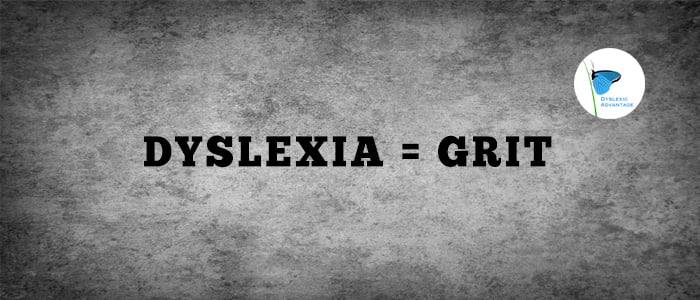Neuroscientists at the University of California San Francisco, just reported their finding that dyslexic children ages 7-12 showed stronger emotional responses as measured by a variety of measures than their non-dyslexic peers. From the study abstract: “..we examined whether right-hemisphere-based emotional reactivity may be elevated in dyslexia. We measured emotional reactivity (i.e., facial behavior, physiological activity, and subjective experience) in 54 children ages 7–12 with (n = 32) and without (n = 22) dyslexia while they viewed emotion-inducing film clips. Participants also underwent task-free functional magnetic resonance imaging. Parents of children with dyslexia completed the Behavior Assessment System for Children, which assesses real-world behavior. During film viewing, children with dyslexia exhibited significantly greater reactivity in emotional facial behavior, skin conductance level, and respiration rate […]
Tips From Hannah: College Junior with a 4.0 [Premium]
KNOW YOUR STRENGTHS – SELF-ADVOCATE – Early in group work, let your fellow students know that you’re dyslexic. Say, “I’m dyslexic, so I can’t read or write well, but I’m creative and can come up with ideas.” – Don’t be afraid of asking students to read things for you. You can help more if people read things aloud to you. – Research on RateMyProfessor ahead of time to find teachers that will work with you re: dyslexia. Are there any warning signs? I like choosing professors who like a lot of class participation. ASK FOR SUBSITUTIONS IF YOU NEED THEM When snow days upset the schedule at school, Hannah had to face learning material and putting together an assignment over Thanksgiving break without the help […]
Teaching Math – No Need for Speed
"What do teachers need to know about teaching math? Strategy over speed, and math thinking over rote memorization." - Stanford Professor Dr Jo Boaler Check out Jo's tips from her new article, Speed and Time Pressure Block Working Memory (below). "I was always deeply...
The Moral Harm of Dyslexia Unawareness
Primum non nocere. – Latin Saying (First, do no harm) The Latin Saying Primum non-nocere may not have originated with Hippocrates, however the advice is also like a laser beam focused on the greatest harm that comes from dyslexia unawareness. A few days ago, a colleague sent me an article where Avengers star (Bruce Banner / the Hulk) Mark Ruffalo shared “The nun who was teaching me early on to read was very cruel because of my dyslexia…these teachings of Christ revolved around love and social justice, and then what I was seeing in that community, the way they did business, the way nuns treated children — all of that seemed to be at odds with each other. I lost my faith in that institution when I was very […]
How to Become More Resilient
"Do you conceptualize an event as traumatic, or as an opportunity to learn and grow?..." Resilience is a topic that's one of our favorites because although people may temperamentally vary in how much they have of it, science shows that it is trainable, it helps people...
GETTING PAST ANGER
If you meet Henry Winkler today, one of the last words to come to mind would be the word "anger." Yet anger is what Henry battled with for years because of his experiences in school before dyslexia was recognized.... Henry wasn't allowed to graduate with his class at...
How to Help With the Social and Emotional Side of Dyslexia
Dr. Michael Ryan is a Michigan Clinical Psychologist who developed one of the first clinical programs for LD students at Colorado State University and he spoke at our first Dyslexic Advantage conference. From his writing at LDOnline and the IDA: How can parents and...
How to Respond to Negative Self-talk
From Imperfect Families: Empathize: Put yourself in their shoes and try to understand what they may be feeling. “That writing assignment’s pretty challenging, eh?” Rewrite the script: Instead of “Writing is hard. I’m stupid,” your child could say, “I’m working hard on...
What’s the Most Stressful Time for Dyslexic Students?
ANSWER: Grades 3-5 in Elementary School. If we know this, are we doing everything we can to help students emotionally and socially in these grades? There are many pressures that converge on the 3-5th grade (see The 3rd Grade Wall), and developmentally, it is a...
Let Them Listen – Audiobooks and Dyslexia [Premium]
Let Them Listen! “The objective of the present research study was to understand what benefits the use of audiobooks (both school-books and books of various genres, recorded on digital media) could bring to preadolescents and adolescents with developmental dyslexia. Two groups, each consisting of 20 adolescents, were compared. The experimental group used the audiobooks, while the control group continued to use normal books. After 5 months of experimental training, the experimental group showed a significant improvement in reading accuracy, with reduced unease and emotional–behavioural disorders, as well as an improvement in school performance and a greater motivation and involvement in school activities.” – Milani et al., Dyslexia (journal) It’s surprising how often we continue to hear that dyslexic students are denied the use of audiobooks […]
Are Standardized Tests Making Kids Anxious? [Premium]
Florida Department of Education just released results of their Florida Standards Assessment or FSA Test. 46% of all of the public school children who took the test were below standard and 20% are at risk for being held back in the 3rd grade. What are these tests that can force 3rd graders to repeat a year? A sample 3rd grade reading passage (with questions and answers) is provided by the Department. The passage was clearly developmentally appropriate for 3rd graders – and ridiculous for dyslexic 3rd graders who are likely to make up 15% of every classroom. But don’t take just our word for it. When we put the 3rd grade FSA practice reading passage through a readability tool, What was the passage appropriate for? […]
Dyslexia = Grit
A Penn Professor's book is currently winging its way around the Internet: Grit - the Power of Passion and Perseverance - with its talented author Angela Duckworth making the rounds around popular media outlets. With interest, I looked clicked on a link to a popular...

![Dyslexia and Stronger Emotional Responses [Premium]](https://www.dyslexicadvantage.org/wp-content/uploads/2021/04/Stronger-Emotional-292x250.png)
![Tips From Hannah: College Junior with a 4.0 [Premium]](https://www.dyslexicadvantage.org/wp-content/uploads/2021/04/Hannah-306x250.png)







![Let Them Listen – Audiobooks and Dyslexia [Premium]](https://www.dyslexicadvantage.org/wp-content/uploads/2017/02/reading-audiobooks-our-shutterstock-scaled.jpg)
![Are Standardized Tests Making Kids Anxious? [Premium]](https://www.dyslexicadvantage.org/wp-content/uploads/2016/05/our-shutterstock.jpg)














